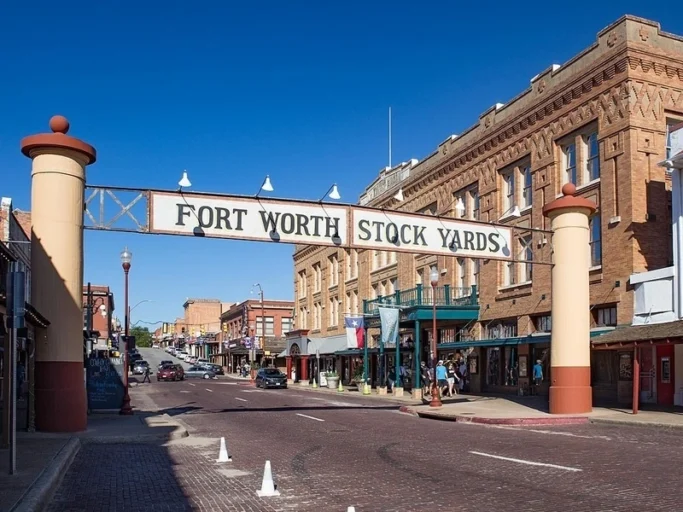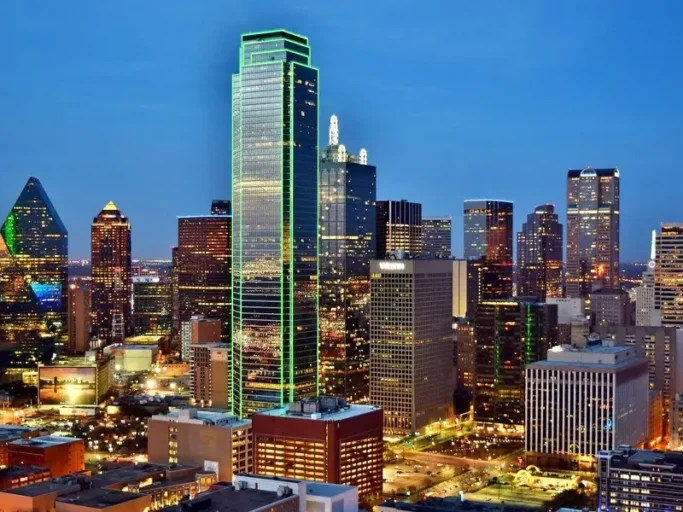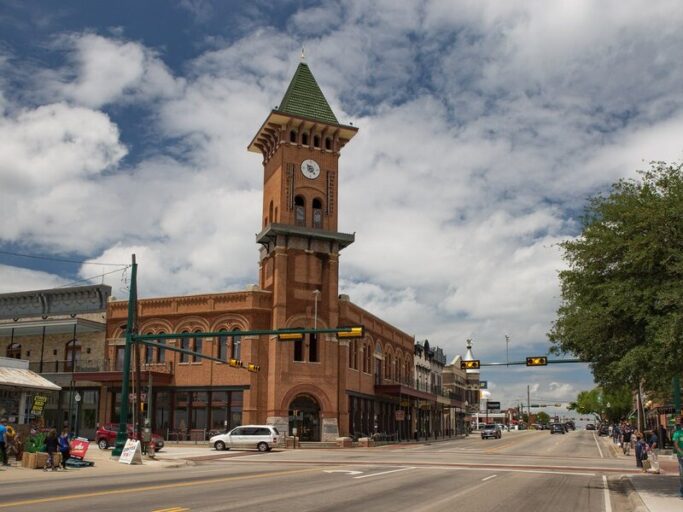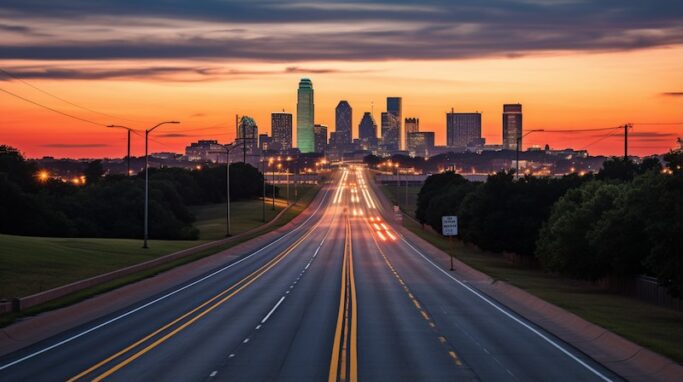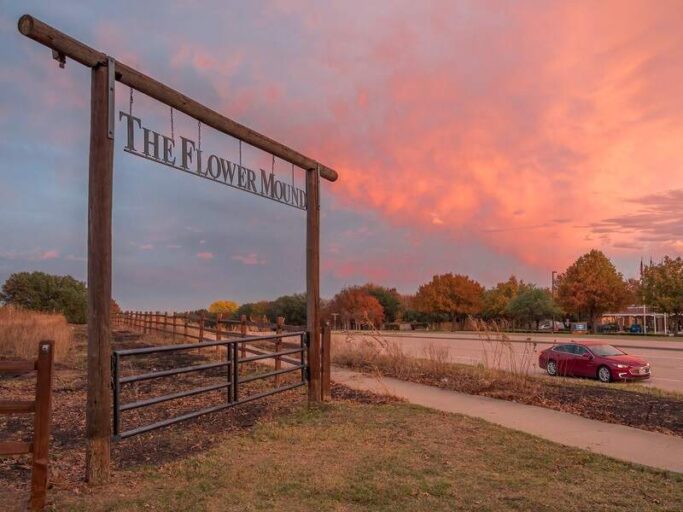Moving Tips & Resources
Ultimate Guide to the Differences Between Fort Worth and Dallas
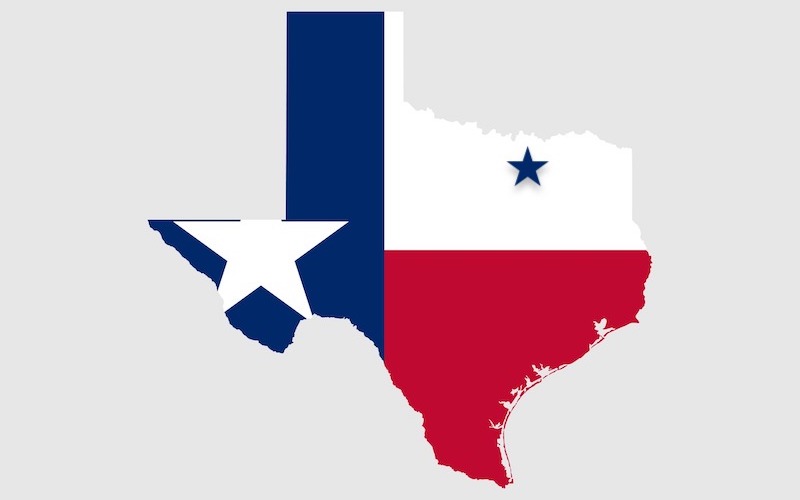
The cities of Dallas and Fort Worth are geographically joined by the 35 miles of suburbs that connect them, and together, they are officially designated as the Dallas-Fort Worth-Arlington metroplex by the U.S. Office of Management and Budget. Although the government has deemed Dallas-Fort Worth to be one continuous area, local residents will tell you these cities are anything but the same.
In a nutshell, Fort Worth is closer to the typical idea of a traditional Texas city and has more of a casual feel, while Dallas is the quintessential American urban center, complete with the pace and activity you would expect from a city that’s one of the nine largest cities in the U.S.
If you’re planning to move to the Dallas-Fort Worth area, contact our team of expert movers. If you haven’t yet chosen which part of it you want to call home, read on for the scoop on the most notable differences between these two popular American cities.
The Pros and Cons of Moving to Dallas or Fort Worth
Since they’re in such close proximity to each other, the two cities share a lot of the same advantages and disadvantages, such as:
- Weather: The upside here is that winters are mild, and there’s plenty of sunshine throughout the year. The downside is the long stretch of hot, humid weather in summer and the threat of tornadoes in spring and early summer.
- Traffic: With more than six million people in the Dallas-Fort Worth metroplex, it’s not surprising that residents have to deal with heavy traffic. The area ranks 14th among the most congested cities in the country, so you’ll probably want to take your commute into consideration when settling on your new home’s location.
- Property values: Another two-sides-of-the-same-coin situation is the price of homes in Dallas-Fort Worth. Homeowners have seen the value of their homes rise in recent years, while people seeking homes here are paying higher prices than ever before.
Here are a few of the pros and cons unique to each city:
The Pros and Cons of Moving to Dallas
Dallas attracts visitors and new residents from around the world, thanks to big-city features like these:
- You could eat at restaurants every night, and there would still be plenty of great spots you missed. The cuisine here runs the full gamut from down-home barbecue joints and taco trucks to the finest high-end dining.
- Cultural options abound — Dallas is known for its exceptional art museums, galleries, and a range of year-round cultural events.
- You can live the ultimate urban lifestyle, whether that means occupying the top floor of a luxury skyscraper or setting up a home where the best of city living is just steps from your door.
At the other end of the spectrum, these are some of the downsides you’ll encounter if you move to Dallas:
- Dallas covers about 343 square miles, so unless you live very near where you work, commuting will take up a lot of your time. Road construction is never-ending, too.
- Like many cities of its size, Dallas has problems with pollution. It ranks 16th among the most-polluted cities in the country, according to the American Lung Association.
- Overall, Dallas doesn’t rank well on the safest American cities lists, but there are many safe neighborhoods to live in.
The Pros and Cons of Moving to Fort Worth
Although it’s located so close to Dallas, Fort Worth has its own advantages, such as:
- The city is home to the annual Fort Worth Stock Show & Rodeo, which reflects its history of cattle drives and its present ranching industry. This event is the longest-running rodeo in the U.S.
- Fort Worth is a come-as-you-are kind of town that’s well-suited to those who prefer a more traditional way of living.
- Fort Worth is quieter than Dallas in almost every way, but residents can easily get to Dallas for some urban excitement.
You’ll want to be prepared for some of these downsides if you’re headed this way:
- Although traffic congestion isn’t as bad as it is in Dallas, Fort Worth doesn’t have an extensive public transportation system.
- Residents who live in some of the most recently built suburban developments around Fort Worth cannot access city services since they are not technically part of the city.
- While there are some good schools in the city, crowded classrooms and a lack of funding are a drag on the independent school system’s quality and progress.
Things To Do
Do you want to learn how to ride a horse or go to symphony orchestra performances? You can do both and everything in between in the Dallas-Fort Worth area. Both cities provide endless options for recreation and entertainment — you’ll find any activity you can think of within easy driving distance. Here are just a few popular destinations and events in each city:
Things To Do in Dallas
Dallas Arts District
This 68-acre, 20-square block district brings together performing arts venues, restaurants, bars, parks, museums, and much more. Take a 90-minute walking tour to see the district’s unique collection of architecture or explore everything the district has to offer at your own pace.
Dallas Arboretum and Botanical Gardens
Cool off in the shade of the arboretum’s 66 acres. This Dallas gem has been included among the world’s top arboretums, and it’s located on the shores of White Rock Lake. Don’t miss the Rory Meyers Children’s Adventure Garden and its monarch butterflies.
AT&T Stadium
Get an up-close look at the home of the National Football League’s Dallas Cowboys with a self-guided tour, or take the VIP Guided Tour for additional sights, such as stops in the print media press box and private suites. You can also explore the exceptional collection of contemporary art at the stadium.
Things To Do in Fort Worth
Fort Worth Stockyards National Historic District
Where else but in this historic city can you witness the world’s only twice-daily longhorn cattle drive? While you’re here, check out the great saloons and winery, the 5,400-square-foot Cowtown Cattlepen Maze and the family-friendly Cowtown Opry shows.
Fort Worth Zoo
All great cities have a great zoo, and Fort Worth is no exception. A day spent at the Fort Worth Zoo includes the chance to feed a giraffe, take in an educational encounter with animals at the Outdoor Learning Theater, get in some rock-climbing practice, and ride the Yellow Rose Express Train. The zoo even offers a Safari Overnight adventure that includes a guided evening tour, a morning tour before opening hours, and all-day zoo admission.
Fort Worth’s Sundance Square
With a nod to historical Western architecture, the modern 37-square-block Sundance Square is a hub of entertainment, restaurants, art galleries, shopping, and more. Make it a point to take in a performance at the Bass Performance Hall, known for its exceptional acoustics.
Getting Around
If you’re in the downtown districts of either city, walking is the best way to go. For activities that are beyond walking distance, you’ll need a car, or you can take advantage of public transportation options.
Public Transportation in Dallas
Dallas gives you plenty of ways to travel around town, including:
- The Dallas Area Rapid Transit (DART) system, which offers a system of bus and train connections linking the city to surrounding suburbs
- The McKinney Avenue Trolley (M-Line), which operates restored vintage trolleys from McKinney Plaza to downtown
- The Trinity Railway Express, which connects Dallas Union Station to Fort Worth and the DFW Airport
- The Trinity Metro
Public Transportation in Fort Worth
These are your options in Fort Worth:
- The Trinity Metro citywide bus system, which connects the Fort Worth Stockyards and Dallas
- The DASH electric bus, which connects downtown Fort Worth with Dickies Arena and Museums
- Trinity Metro TEX Rail, which connects downtown Fort Worth with the DFW Airport
- The TRE train, which connects downtown Fort Worth and Dallas
Where To Live
The Dallas-Fort Worth metroplex is vast, stretching across 9,286 square miles. That means, of course, you have an unusually large number of neighborhoods, suburbs, and districts from which to choose when it’s time to settle down.
Our local movers in Dallas and Fort Worth serve customers throughout both cities. Here are just some of the neighborhoods our teams have come to know well through our 40 years of offering moving services in Texas:
Notable Neighborhoods in Dallas
- Downtown is where to go if you love an active, urban lifestyle. First-class restaurants, world-renowned museums and cultural spots, high-end shopping, and more are just steps away from wherever you live downtown.
- Uptown is known for being walkable and for its galleries, shopping, urban Katy Trail greenbelt, and historic buildings.
- Deep Ellum gives you a perfect mix of single-family homes and modern condos. People come from all over the city for the neighborhood’s nightlife.
- The Medical District is a popular place to live for people who work in the district’s hospitals, medical centers, and medical research institutions.
- University Park is an affluent spot known for its shopping choices and entertainment options. It puts you close to downtown but away from the hustle and bustle.
- The Design District has a great selection of restaurants, breweries, art, cultural centers, and more. It’s also convenient for getting downtown.
Notable Neighborhoods in Fort Worth
- Fairmount is a walkable neighborhood that gives you easy access to downtown Fort Worth. It’s one of the southwestern region’s largest historic neighborhoods, and housing pricings are reasonable.
- Tanglewood is popular with families, especially those who love getting outdoors. It’s close to the Trinity River and has the scenic Hartwood Park running right through it.
- Walsh is a master-planned community with all the built-in amenities you would expect in a large development. It includes 32 miles of biking and hiking trails and its own schools, and it’s a quick 12-minute commute to downtown Fort Worth.
- Westcliff offers homes in a wide range of prices. It’s right between Interstate 20 and Interstate 30, making it convenient to get around town. It’s also close to the excellent Fort Worth Zoo.
- White Lake Hills is bordered by green space on three sides and offers reasonably priced homes in a scenic environment. Families love White Lake Hills for its many parks, playgrounds, sports fields, and trails.
- Candleridge is another neighborhood with plenty of parks and green spaces. It also has good nightlife and entertainment choices, plus restaurants and retailers.
Questions About Moving to Dallas or Fort Worth? We Have Answers!
No matter which city you choose as your destination, you’ll have easy access to both cities’ amenities. To help you make your decision, our residential moving team in Fort Worth and local movers in Dallas answer some of the most asked questions about this area of the Lone Star State.
Is it cheaper to live in Dallas or Fort Worth?
Fort Worth is a somewhat less expensive place to live than Dallas, but it’s important to remember that incomes are higher in Dallas overall. How much it costs you to live in either city depends in part on what type of housing you prefer and your lifestyle. It’s safe to say, however, that you can expect to spend less on rent, restaurants, and groceries if you make your home in Fort Worth.
What types of jobs are there in the Dallas-Fort Worth area?
Thanks to a wide, diverse range of industries and business types here, job opportunities are plentiful. People come from all across the country to work in industries such as medical research, telecommunications, information technology, energy, financial services, defense, semiconductors, and transportation and logistics.
Major employers include Lockheed Martin, Baylor Healthcare System, Southwest Airlines, ExxonMobil, Texas Instruments, Bank of America, and the area’s universities.
Is Fort Worth a “cowboy” city?
If you visit both Dallas and Fort Worth before you decide to live in the area, you’re bound to note that Fort Worth has a distinctly “American West” vibe and doesn’t miss a chance to celebrate its deep Western heritage. The days of the storied Wild West are kept alive, particularly in the Fort Worth Stockyards National Historic District.
If your idea of Texas includes cattle drives and rodeos, you’ll find it in Fort Worth.
Which is better for families: Dallas or Fort Worth?
With a lower crime rate and cost of living, Fort Worth is often the more popular choice among families. It’s easier to find affordably priced real estate and quiet neighborhoods in Fort Worth, and the city has top-rated schools. Best of all, the attractions of a large metropolis are just 30 miles away, so you and your family can still enjoy everything Dallas has to offer.
How To Find the Best Moving Companies in Dallas and Fort Worth
When you’re preparing to put all your belongings in the hands of a moving company, it’s important to make sure you are working with one that’s reputable. This guidance can help you find a mover in Dallas or Fort Worth you can trust:
- Check each company’s credentials. Make sure the company you select has a physical address (a post office box isn’t enough), a Texas Department of Motor Vehicles number, and proof of proper licensing and insurance.
- Look for professional accreditations with industry associations, such as the American Trucking Associations (ATA).
- Obtain multiple estimates and make sure you understand all the fees and charges associated with each one. Also, limit your choices to moving companies that perform an in-person or virtual survey; this can help ensure your estimate will be accurate.
- Avoid companies that will only take your payment in cash, refuse to provide a written moving estimate, or require total payment upfront. Also, steer clear of companies that don’t have a website or online presence, which may be a sign of a rogue moving company.
- Ask friends, family, neighbors, and colleagues if they can recommend a trustworthy moving company they’ve used before. Check online reviews of moving companies, but keep in mind that these don’t always provide the most accurate assessment of a company.
- If you anticipate that you will need storage services, ask each company for details on the services they offer. Find out how secure the companies’ storage facilities are and whether they are monitored around the clock. Also, make sure their fees for storage services are clear and include everything you may be charged for.
Need Expert Moving Services? Count on Daryl Flood.
Whether you’re moving to the area from another Texas city or another state, the team at Daryl Flood has everything you need for a safe, efficient, and affordable move. With our network of premier partners, we can take you anywhere you need to go.
Our moving crews are well-trained in the best and latest methods for packing and moving, and every crew member has passed a background check. To make sure your move goes smoothly, you’ll have the services of a personal relocation coordinator who’s always available to answer your questions, help you plan your move, and keep you informed every step of the way.

